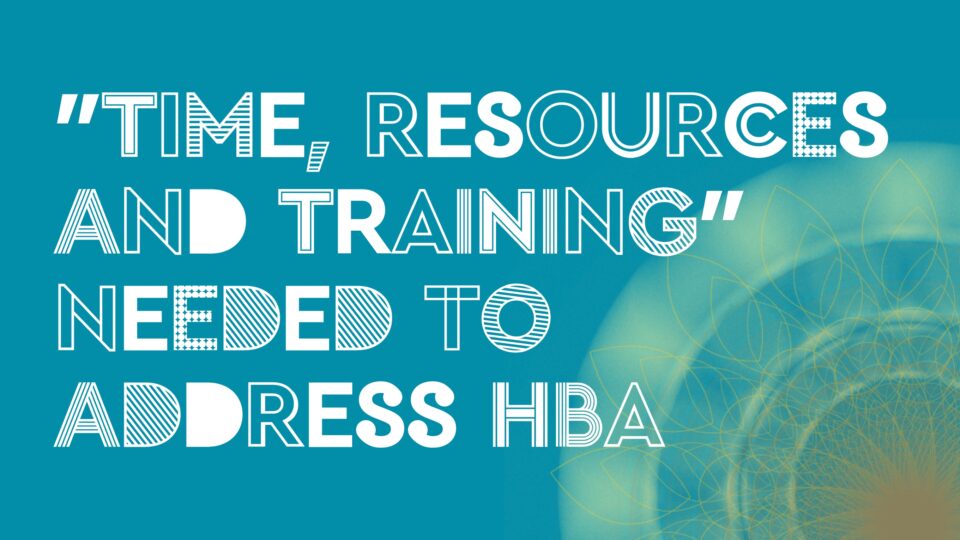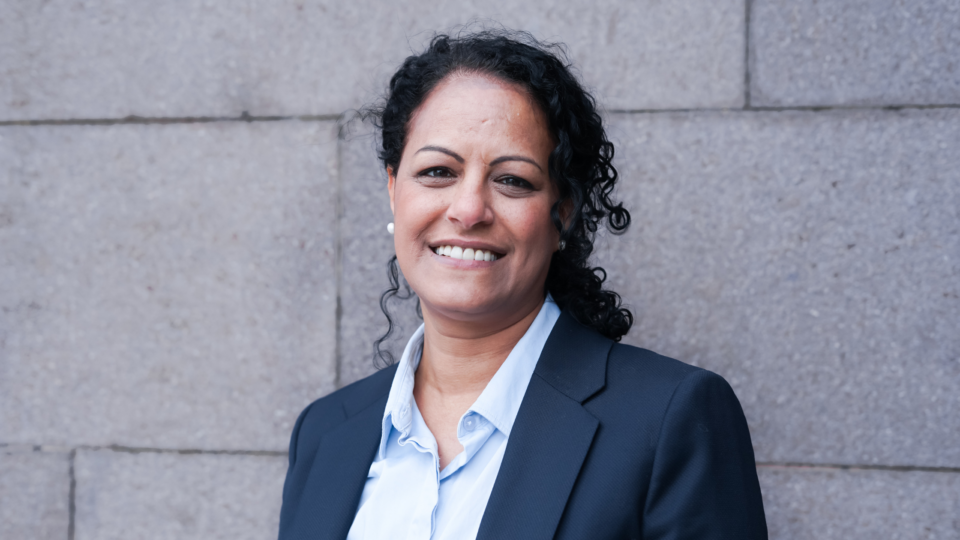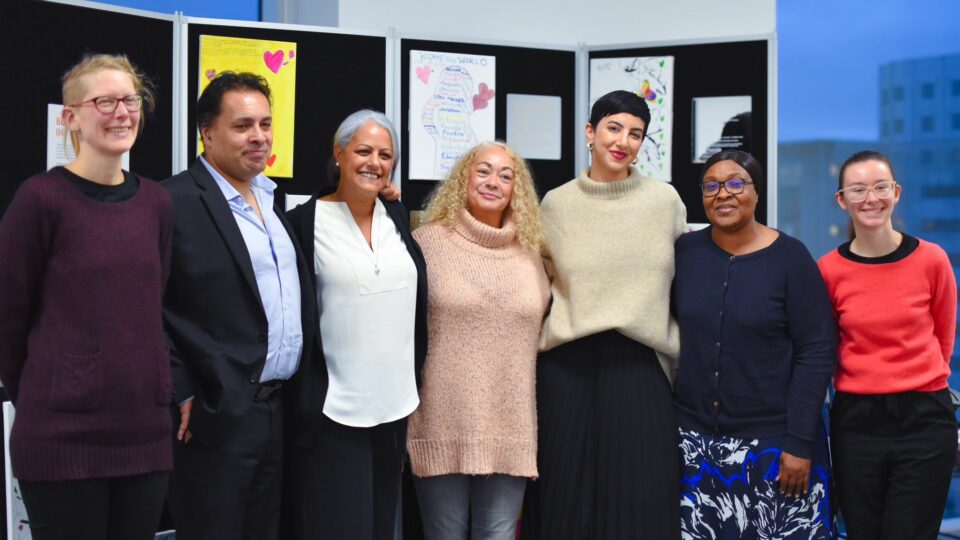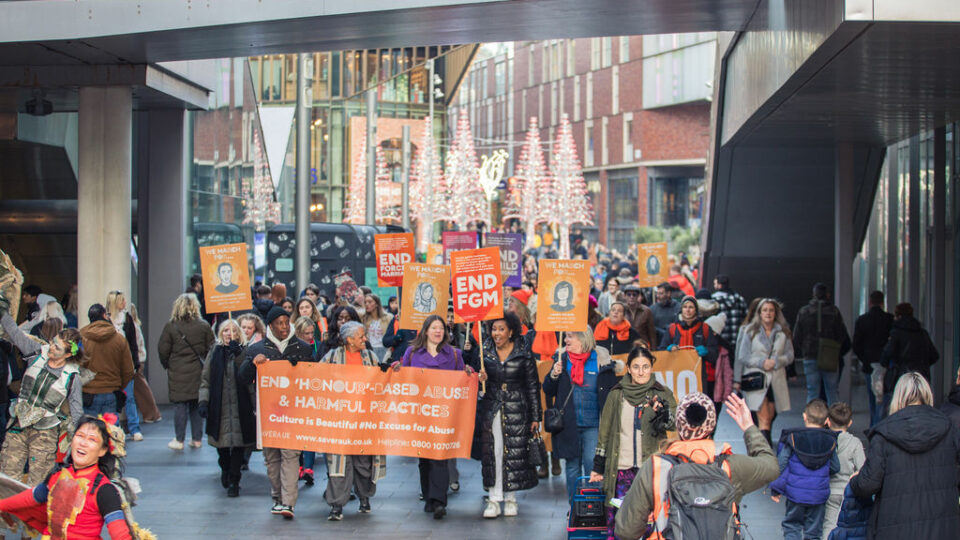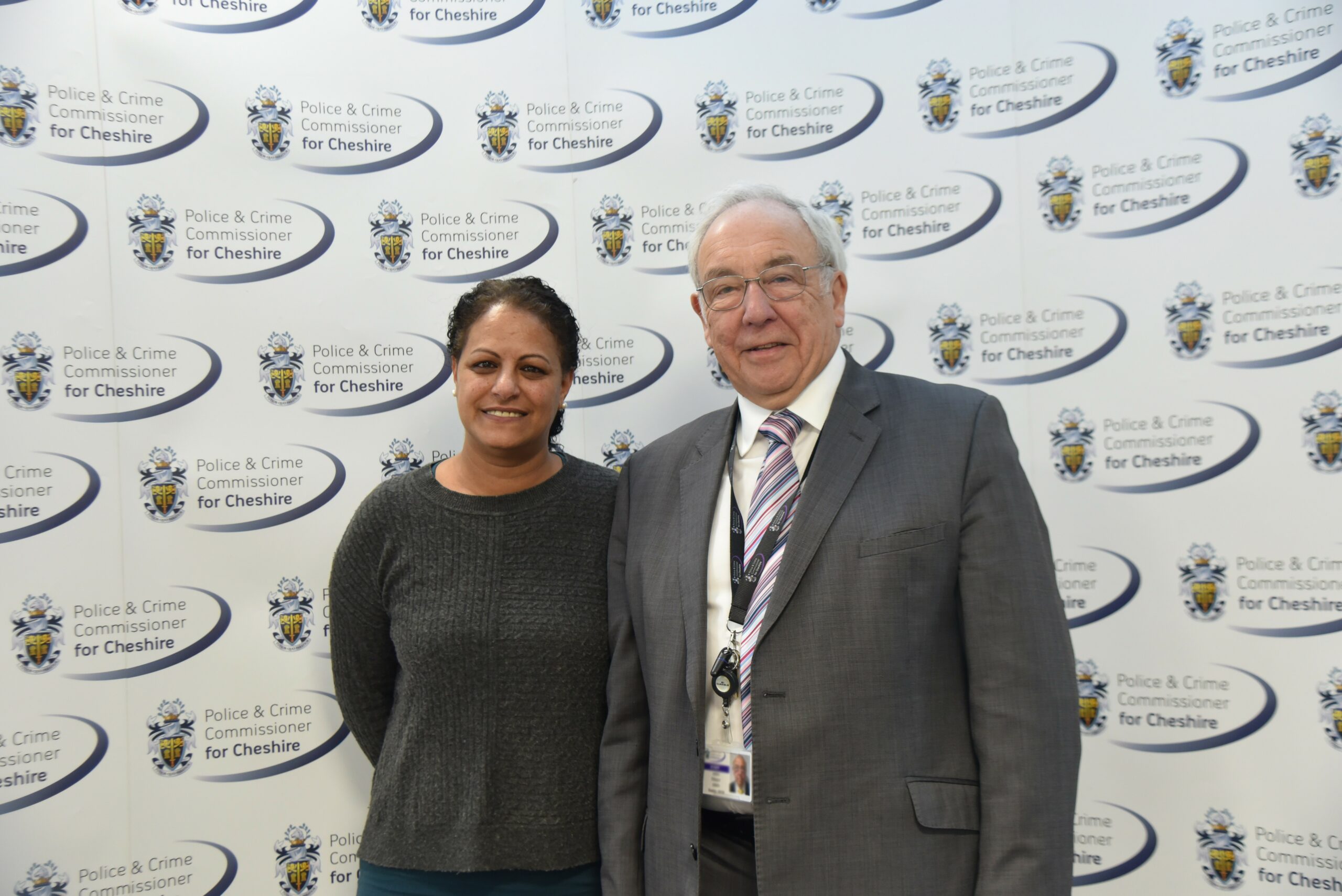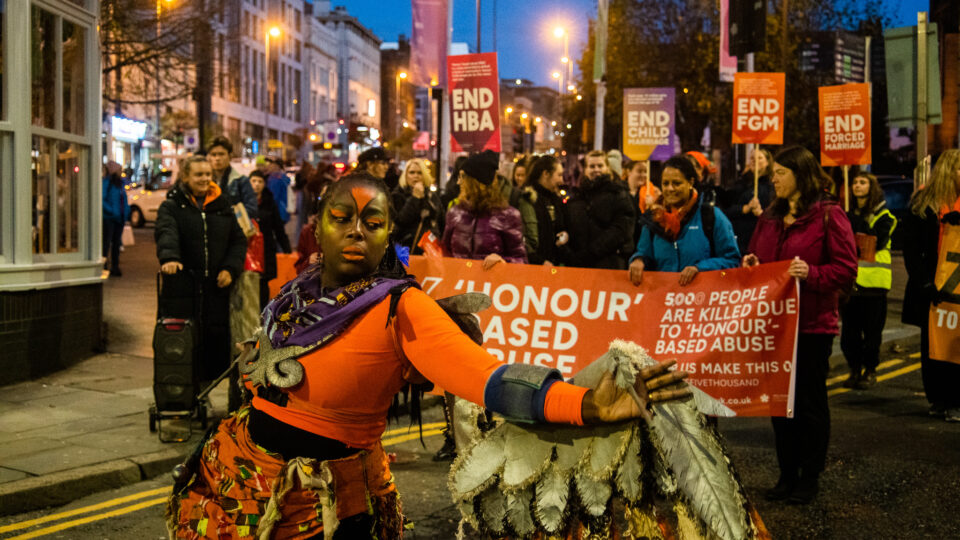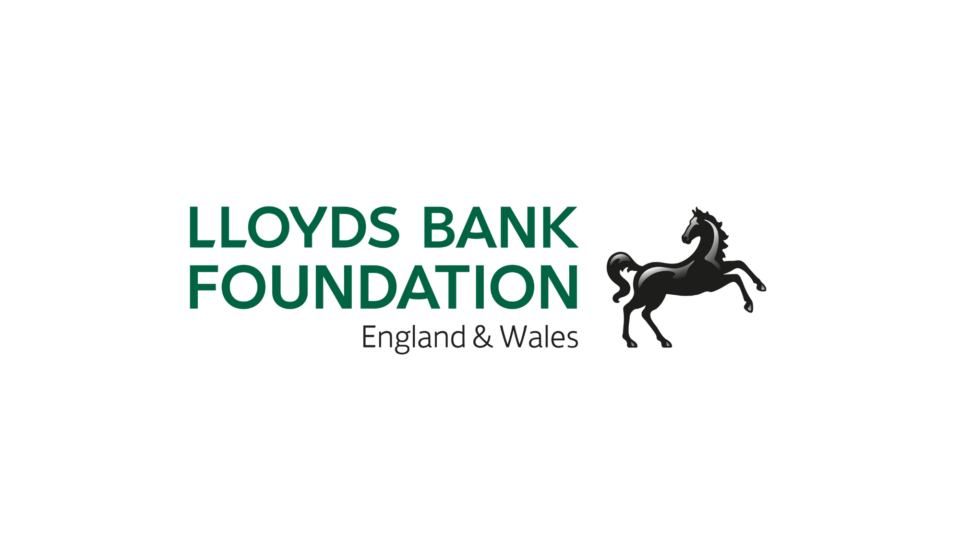On Friday 8th December Savera UK brought together human rights barrister Dexter Dias KC, Savera UK survivor ambassador and IKWRO campaigner, Payzee Mahmod and Kim Johnson MP, for a discussion about culture, ‘honour’-based abuse (HBA) and harmful practices and the law.
The event, delivered in partnership with LJMU and chaired by Dr Hannah Baumeister from LJMU, also included input from Savera UK CEO and Founder, Afrah Qassim, and testimony from one of the charity’s clients.
Following introductions, to start the event, an audio recording of Fato* sharing her story was played to attendees, highlighting the devastating impact of HBA and the work Savera UK does to help survivors and those at risk.
“No Justice”
During her testimony, she said: “I fled my home as I got no justice whatsoever from the police. I fled to the United Kingdom to seek refuge. When I got here, I believed I was safe for some time, but when I found out that my ex-partner intended on coming to the UK and his friends were sharing information about me back to him, I was referred to Savera UK.
“I was really worried no one would believe me. I was worried I would get the same treatment I got from back home where the victim was to blame, but Savera UK listened, and they were there for me, they supported me.”
Fato’s powerful and dignified testimony clearly demonstrated the need for action to help survivors and those at risk of HBA and harmful practices, and led to the central question of the event: How is culture conflated with HBA and what can the law do about it?
This set the stage for keynote speaker, barrister Dexter Dias KC, who practises in international human rights, public law, and crime, and who during the last 30 years he has been involved in some of the biggest legal cases involving murder, terrorism, crimes against humanity and genocide.
Providing pro bono work on human rights throughout the world, he was also the principal author of the influential Bar Human Rights report to the Parliamentary Inquiry on Female Genital Mutilation (FGM) that helped change the law to protect at-risk girls.
Dexter began by talking about his work on this report. He shared the shocking statistic that a girl somewhere in the world is cut (subjected to FGM) every 10 seconds. He also highlighted what he called a “tripartite structure” around FGM – that is organised and implemented by women, subjected on women and girls, for men.
Dexter said: “I asked, ‘What is it we as barristers doing to protect these women from FGM?’ and the answer was nothing.”
“You Can Change Something”
In response Dexter set up a working group that compared the obligations of this government and of previous administrations and found it in breach of international duties to protect women and children. The report presented a number of recommendations and eventually – alongside the work of brilliant survivors – it helped to change the law to strengthen FGM protection orders, which have since protected 500 girls.
Dexter highlighted that not all the recommendations made in his report had been implemented. He said: “You can’t change everything, but you can change something.”
Moving on to work he had undertaken around sexual abuse in South Asian community, he spoke about the cultural blocks to reporting child sexual abuse in these communities; deference, respect, social standing, and the notion of ‘honour’ and shame.
The challenge was that people did not report such abuse due to ‘social policing’ and for fear that doing so would bring shame on or ‘dishonour’ the family or community, and that there would be repercussions for this, such as being harmed or ostracised from the community.
Dexter explained his provisional hypothesis of how this notion began. He said: “We can track it back four million years, to Central Africa where we all came from. There we developed a sense of belonging and back then if you didn’t belong, you died. It was about survival.”
Through this hypothesis, Dexter explained how this relates to people who believe in harmful practices like FGM – a fear of ostracism and being cast out. He said: “The women organising it have suffered it themselves. They want the best for their children, they won’t be on social service’ radar, but they are subject to social policing. The fact is we want to belong, and while it isn’t life or death now, it’s a social death if you do not conform.”
So, what is the answer to preventing this harm and these abuses of human rights? Dexter said: “The answer isn’t: ‘these are evil people, and we need to lock them all up’. No, what we needed to do was intervene upstream with tools like FGM protection orders.”
Rounding off his speech, of these practices and beliefs, Dexter said: “We have constructed them, and we can deconstruct them.”
HBA & Culture Panel
Following Dexter’s keynote, Dr Hannah Baumesiter, Law Lecturer at LJMU, welcomed panellists Kim Johnson, MP for Liverpool Riverside and the first Black MP for the city, who also sits on the Women & Equalities Committee, and led the committee’s inquiry into so-called ‘honour’-based abuse, and Payzee Mahmod, who raises awareness and campaigns to end harmful practices including child marriage, FGM, virginity testing and hymenoplasty.
Payzee draws on her own lived experiences as a survivor and the loss of her sister Banaz, in a so-called ‘honour’ killing. After being forced into a child marriage aged 16, Payzee lead the three-year-long campaign to change the legal age of marriage from 16 to 18, in England and Wales (Marriage and Civil Partnership (Minimum Age) Bill, 2023).
The discussion began once again with the question of culture, HBA and harmful practices and how and why they are conflated.
Kim Johnson said: “Culture is used as a way and means of burying the head in the sand, as something for people to hide behind. It was common when I was growing up in L8 for lots of girls to go off for weeks and months and everyone knew what was happening, but nothing was done.
“Police, nurses, teachers all have a responsibility to call it out, but there is a lack of understanding and training, which should be integral in public sector services.”
Payzee added: “When culture was used as a reason for what was happening to me and my sisters, it normalised it. It meant my teachers and doctors didn’t question when at 16 I told them I was pregnant and didn’t want to have this baby because I was married. But culture can never be an excuse for abuse.”
Dexter spoke of the challenges he faced in his work around FGM in Africa. He said: “People asked why are you consumed by this? What happens to women in sub-Saharan Africa has nothing to do with you. Who are you to intervene in their cultures and traditions? The answer is that it is a matter of human rights.
“When you speak to girls in sub-Saharan Africa and say, ‘you have a right to bodily integrity’ and ‘you have a right NOT to be cut’ you can see a light bulb go on. When people ask, ‘what can the law do?’ I say that we can tell people what the law is, so that they know.”
“We need to be embedded in communities”
This observation turned the discussion to education. Afrah shared how Savera UK was established after a school turned to her for advice in helping girls whose families were talking about marriage and wanted help. Afrah said: “The school believed it was talking about cultural issues and it didn’t have appropriate knowledge. They were scared to say the wrong thing or to cause offence.”
The panel agreed that this is why education is so important, not just for young people and people in general, but also to train the educators to respond appropriately to these issues. The panel also agreed that education and even challenging communities without fear was also important.
Kim said: “We need to be embedded in communities, raising awareness, and challenging things, asking ‘is this right?’. We need to address the fear of reprisals in the community.”
Discussing the challenge of social policing, Afrah agreed: “We need advocates embedded in those communities where these issues are prevalent. Some individuals want to report these issues, but fear of being found out and the consequences prevents them. They are accused of forgetting their culture and identity.
“We need to empower those individuals in those communities. If we’re going to end this, we need to educate communities. If we don’t start with the roots of the issue nothing will change.”
As the panel drew to a close, discussion turned to what has been achieved. Legislation changes such as the change in the legal age of marriage from 16 to 18 in England and Wales and the strengthening of the law through Forced Marriage and FGM protection orders we highlighted as positive steps.
Payzee also added: “Going into the Kurdish and Iranian community I have seen progress and cultural shifts, we are slowly seeing change. When I started speaking up, I had such backlash, they said I was crazy. Now they reach out to me for help. Change doesn’t always happen as fast as we want to but there are changes.”
While it was agreed that legislation was vital, it was also agreed that legislation alone could not end these issues.
Dexter said: “Lawyers overestimate how important the law is. You cannot prosecute FGM into extinction. You have to meet people where they are.”
Speaking of his work with survivor groups he highlighted that not enough people know about the legislation that exists, which is why reaching people who might not be in digital spaces or access the places where legislation is discussed or promoted. He said: ”It actually is important to have a law. So people can say ‘it isn’t just me, the law says it’”.
Data and Funding
The final point of discussion was around the challenges of data and funding, which are often interlinked. During the first years of its existence, Savera UK struggled to convince local authorities that HBA and harmful practices were an issue in Liverpool because there was no data to evidence it. With no data, securing funding was virtually impossible.
As ‘hidden’ practices and ones that statutory and voluntary frontline services are not always equipped or trained to recognise, and with statutory definition for HBA or central system for data to be recorded in, data remains a significant challenge for organisations, services and individuals working to end HBA and harmful practices.
Kim said: “The inquiry into so-called ‘honour’-based abuse highlighted data as vital and having a statutory definition of HBA is important for recording accurate data. Unfortunately, this recommendation was not taken on by the Government, along with others that were made. We need to apply more pressure for those recommendations to be taken on.”
On a final note, Afrah added: “We need these issues to be made part of the mainstream, so that everyone is aware of them. We need better funding and the issue of HBA and harmful practices needs not to be dismissed like it was dismissed in the Domestic Abuse Act.”
Culture, HBA and the Law was delivered in partnership with LJMU, who kindly provided our venue. We will be delivering more events on this topic in the new year, to stay up to date on all news from Savera UK and be the first to hear about upcoming events, please sign up to our newsletter here.
*False name used to protect client identity

